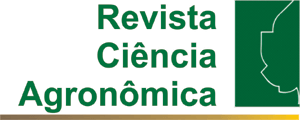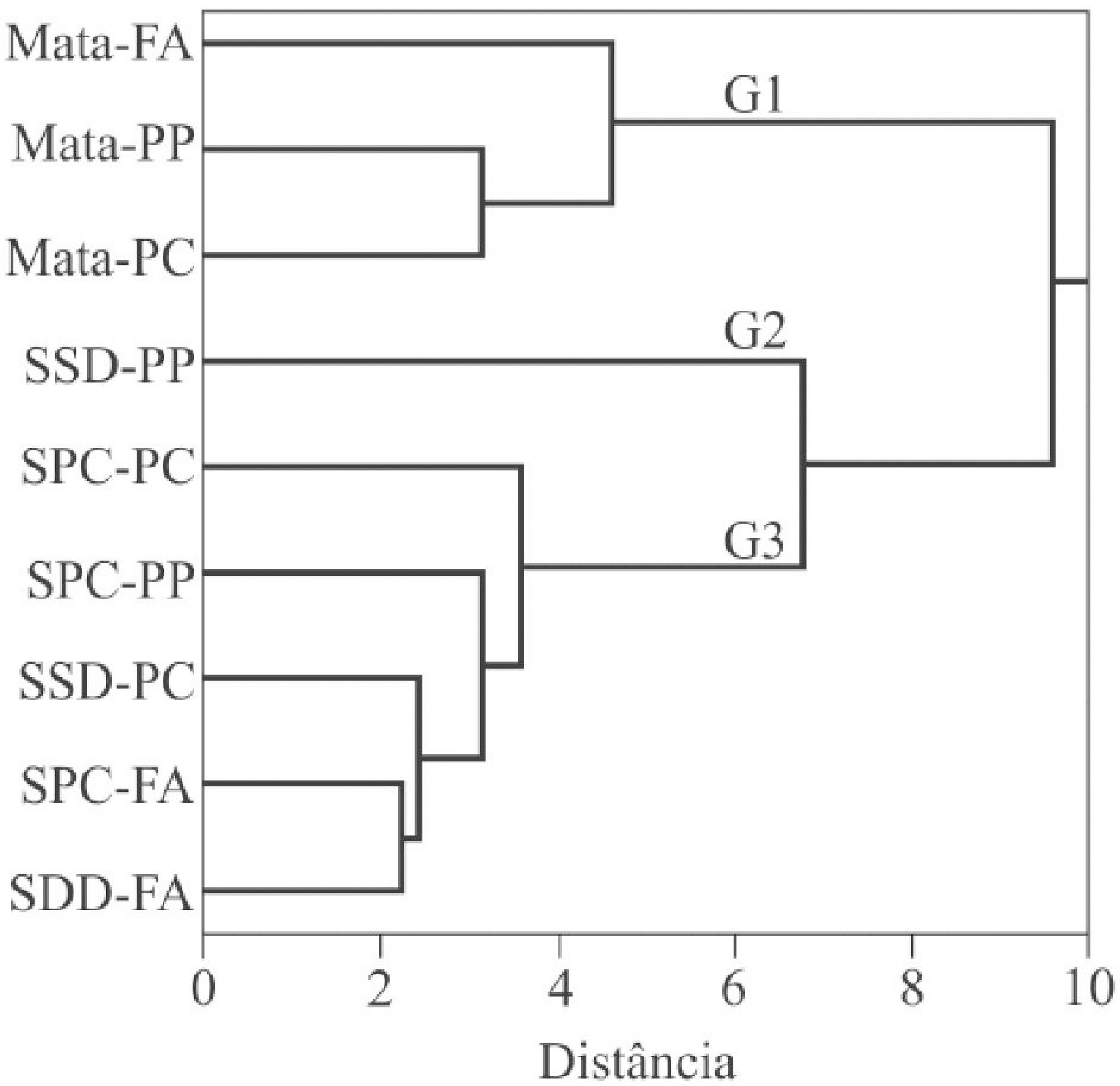ABSTRACT
The attributes of soil microbiota are important indicators of the changes caused by agricultural practices. An experiment was carried out under field conditions in a randomized block design with four replications, with the aim of evaluating the effects of the type of management (a system no tillage - SSD and of conventional tillage - SPC) and the growth stage of upland rice (pre-plant - PP, flowering - FA and postharvest - PC) on attributes of the soil microbial biomass (Cmic, Nmic, BSR, qCO2), enzyme activity (TEA, Aß-G and APA) and population of microorganisms (bacteria, fungi, actinobacteria and diazotrophs) in soil samples collected at a depth of 0-20 cm. An area of forest near the experiment was taken as reference. The management systems caused changes in the microbiological attributes of the soil when compared to the reference forest. A difference was found between the management systems for Cmic, BSR and qCO2; under SSD, the values for Cmic and qCO2 were close to those observed for the forest. No difference was detected between SSD and SPD in the enzyme activity of the soil; however, greater values were found for APA at the PP stage. Overall, the number of microorganisms was higher under SSD and SPC compared to the forest, except for fungi. The greatest counts of microorganisms were found at the PP stage, except for actinobacteria, for which the highest value was found at the PC stage.
Key words:
Oryza sativa; Soil management; Soil quality; Microorganism counts

 Fonte:
Fonte: 